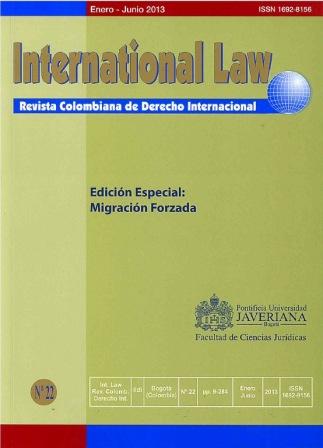Abstract
One of the greatest challenges of the European Union in the following years will be the correct regulation and control of migratory fluxes with the EU as their destination. In this sense, the entrance and movement of non-Community citizens and their access to the different rights established by community norms constitute a particular preoccupation for the legislator. Controlling the entrance of third state citizens by using norms such as the Schengen acquis, regulating types of visas, establishing residence models and their beneficiaries, and acknowledging certain fundamental rights, like the right to family life, would solve many questions regarding the right to free circulation of non-Community citizens. Nevertheless, it is clear that a lot remains to be done in this field, for in a changing society such as ours, in the middle of an economic crisis, the factors that determine the work market, a key element in the displacement of people from one state to another, is bound to be variable and unpredictable and requires a constant updating of new forms of regulation to match the existing realities. The present paper analyses the current situation of Community freedom, by observing both the norms that regulate extreme cases and the jurisprudence that determines its interpretation and evolution.
This journal is registered under a Creative Commons Attribution 4.0 International Public License. Thus, this work may be reproduced, distributed, and publicly shared in digital format, as long as the names of the authors and Pontificia Universidad Javeriana are acknowledged. Others are allowed to quote, adapt, transform, auto-archive, republish, and create based on this material, for any purpose (even commercial ones), provided the authorship is duly acknowledged, a link to the original work is provided, and it is specified if changes have been made. Pontificia Universidad Javeriana does not hold the rights of published works and the authors are solely responsible for the contents of their works; they keep the moral, intellectual, privacy, and publicity rights.
Approving the intervention of the work (review, copy-editing, translation, layout) and the following outreach, are granted through an use license and not through an assignment of rights. This means the journal and Pontificia Universidad Javeriana cannot be held responsible for any ethical malpractice by the authors. As a consequence of the protection granted by the use license, the journal is not required to publish recantations or modify information already published, unless the errata stems from the editorial management process. Publishing contents in this journal does not generate royalties for contributors.


